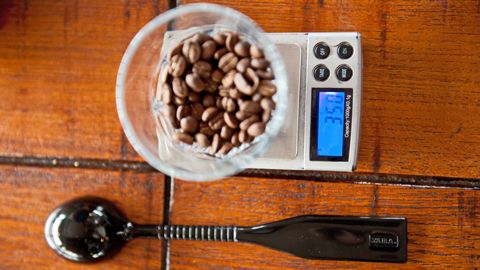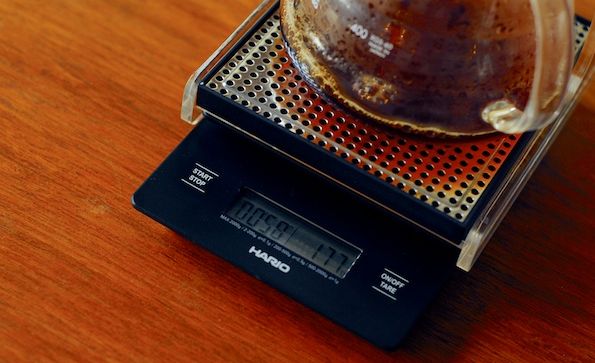Have you ever had one of those days when you make an AeroPress or a plunger and it just tastes so damn good you are forced by the power of the coffee gods to make another round, but alas the second round just didn't live up to the brilliance of the first?! And you think to yourself, but I did everything the same, I used two scoops of coffee, I poured the water to the same line, it's the same coffee, what changed between now and 20 minutes ago?
So here's the thing, if you're afraid that coffee is getting too technical and you think it's too much effort to whip out a scale to measure the coffee and measure your water, then you can never expect consistency of deliciousness in that end cup.
Remember that coffee is a science! Any coffee recipe from any of the coffee professionals comes with 25g of this with 150g of that guideline and although it is a mindset shift to start weighing everyday, it will just make such a difference to your coffee drinking experience. So if you have a coffee geek friend, their next birthday/Christmas present is sorted ;) The really awesome ones come with a timer...
We asked a couple of coffee professionals just how important they think a scale really is.
Ishan Natalie (2 time National Barista Champion):
"Definitely for accuracy in brew ratios and most importantly consistency.
Matt (Carter) and I recently tested the scoop vs weighing the beans and found that due to various bean size and density differences in beans, an 8g, 10g and 12g indicator on a scoop isn't exactly correct and isn't always the same. Same thing with water; all types of water (soft, hard, neutral, pure, etc) have different densities which will affect strength and flavour.
Gerald Charles (Current Western Cape Barista Champion):
"Weighing water and coffee gives a point of reference - toward finding Nirvana that can be replicated in the end cup"
Craig Charity (Current No. 15 barista in the World):
"It takes out the guesswork, I am guaranteed a certain quality of coffee."

